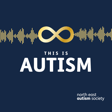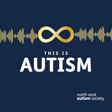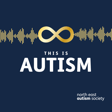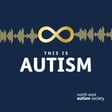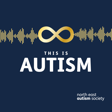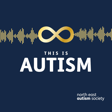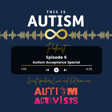
12. 'The Instagram moment' - life before and after my autism diagnosis
James Henderson, 33, from Sunderland, opens up on our ‘This is Autism’ podcast about life before and after receiving his autism and ADHD diagnosis at 32.
Struggling with anxiety, frustration, and mental health challenges, it was a single Instagram post that sparked James’s journey to understanding himself. “It described this rage that starts in your stomach and spreads through your whole body. I wasn’t violent — just so irritated all the time. That’s when I realised, I needed to do something.”
James shares how therapy and support led him to his diagnosis, and helped him finally make sense of his experiences and who he is. Around 70–80% of autistic people experience mental health conditions, yet many face misdiagnosis, stigma, and a lack of proper support.
In the UK, 70% of people in inpatient mental health hospitals are autistic. Let’s talk about autism, mental health, and why early support matters. Special thanks to host Alex Davies and Brothers of Purpose Podcast for producing this episode.
Time codes for this episode:
2:00 Late diagnosis
2:23 The Instagram Moment
3:33 Therapy
6:30 Anxiety
11:00 Childhood
12:45 Diagnosis
18:00 Changes after diagnosis
20:00 Mental health
21:00 ADHD and medication
24:45 Life after diagnosis
28:00 School
33:00 Impact of diagnosis and work
37:30 Sense of justice
40:00 Communication
41:00 Masking
45:00 Perception
